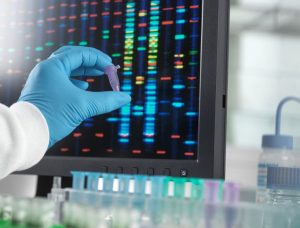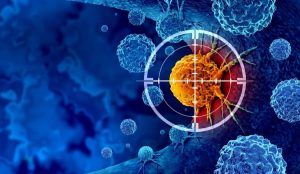
Recognizing Cancer Misinformation: Expert Insights from 2 RCCA Oncologists
“Consider the source.” It’s good advice for dealing with the sting of criticism or the allure of gossip, but two oncologists say it’s even better
HIPAA Alert: Potential Data Breach Learn More
Questions on Oncology, Hematology and/or Infusion Clinical Services due to COVID-19 Crisis – CALL 833-698-1623
Important Information for Our Patients Regarding the Coronavirus.
RCCA Providing Area Cancer Patients with Access to Care During Coronavirus Outbreak
RCCA Offering Patients Virtual Visits During Coronavirus Pandemic
Medical researchers are noticing a concerning trend—an increase in colon cancer rates in the United States among adults aged 55 years and younger. The cause of this trend is uncertain, but the development has captured the attention of several news outlets and left many patients wondering about their risk. Regional Cancer Care Associates (RCCA) specializes in all areas of oncology and hematology. Here, RCCA’s team of expert medical oncologists explores the trend and discusses the importance of early detection.

Colon cancer refers to cancer originating in the lining of the colon. It often begins as a polyp (growth) in the innermost layer of the lining and may grow and spread to nearby blood vessels and lymph nodes and eventually to other parts of the body.
There are several types of colon cancer, including:
Colon cancer is sometimes referred to by the broader term colorectal cancer, which also encompasses rectal cancer, which develops when a tumor forms in the rectum, the lower portion of the large intestine.
A recent study from the American Cancer Society analyzed the impact of colorectal cancer in the U.S., looking at the number of new cases and deaths in 2023, as well as survival rates and demographic trends. One of the most surprising findings is the growing number of early-onset cases. This is colorectal cancer identified in patients younger than 50.
The study explains that rates in patients ages 20 to 39 have been increasing since the mid-1980s and since the 1990s in those 40 to 54 years old. This rise affects Americans of all racial and ethnic backgrounds. These results stand in stark contrast to decreasing rate of colorectal cancer in those age 65 and older.
The cause of the trend is unclear. However, researchers have identified several possible contributing factors. These include:
An unhealthy diet opens the door to many health issues, possibly including colon cancer. Poor nutrition is becoming more common, with many children and adults classified as overweight or obese.
Generally speaking, a diet that contributes to greater risk of colon cancer is:
Eating any amount of processed meats may increase the risk of colon cancer. The risk of colorectal cancer may also be increased by eating more than 18 ounces per week of any red meat. Additionally, drinking alcoholic beverages may increase the risk of many types of cancer, including colorectal cancer.
A sedentary lifestyle may also increase colon cancer risk. Coupled with a poor diet, a lack of physical activity can lead to obesity, further increasing the chances of developing cancer.
Chemicals in the environment may also contribute to early-onset colorectal cancer. The National Toxicology Program of the National Institute of Environmental Health Sciences (NIEHS) issues regular reports of the various biological, chemical, and physical agents and mixtures, as well as types of exposures, that may cause cancer in humans. Exposure to these agents may occur due to air and water pollution or through ingestion in food.
The effects of these chemicals vary. Some harm DNA, potentially causing mutations in the cells of the colon or rectum. Others may impact the gut microbiome. Still others may have an indirect effect, such as those chemicals that impede metabolism, making it harder to maintain a healthy weight.
Activity in the gut microbiome may also explain rising colon cancer rates. Microbes are bacteria and other microorganisms gathered in communities within areas of the body called microbiomes. The gut microbiome refers to microbes in the gastrointestinal tract, or gut, where the highest concentrations are found in the small and large intestines.
Studies have found that certain types of bacteria may facilitate the development and spread of colorectal cancer. These microbes may also impact the effectiveness of some cancer treatments. External factors, such as diet and exercise, may alter gut bacteria.
Poor diet and an unfavorable balance of gut bacteria can lead to increased inflammation. For instance, a high-fat diet may cause gut inflammation and thus support the development of tumors in the intestines. Some bacteria may also aggravate inflammation, accelerate cancer growth, and inhibit cells that fight cancer.
Chronic diseases such as diabetes, may increase inflammation in the gut. Many young people diagnosed with colorectal cancer also have one of these diseases.
As with other cancers, doctors categorize the extent of colon cancer through a system that uses stages. In the early stages—stages 0 and I—cancer has not spread outside the colon. At these stages, the prognosis for patients with colorectal cancer is generally better. According to the American Cancer Society, the five-year relative survival rate for those with localized colon cancer is 91 percent.
As the disease progresses outside the colon into nearby lymph nodes and organs and eventually to distant parts of the body—stages II through IV—the survival rate drops significantly.
These statistics underscore the importance of detecting colon cancer early, so that patients can have access to the most effective treatments and hopefully experience better outcomes. Patients can be proactive about their health by obtaining regular colon cancer screenings.
When a patient should begin screening for colon cancer depends on his or her overall health and risk factors. The general guideline for those not at high risk for colorectal cancer is to schedule annual colonoscopies beginning at age 50. For patients with certain risk factors of colon cancer, such as a strong family history, screening may start earlier.
Patients should also be aware of the signs and symptoms of colon cancer. The disease often does not display signs until it has progressed, but recognizing these symptoms still allows patients to seek care before the cancer spreads further. Symptoms include:
Once doctors have determined the type and stage of a person’s colon cancer, they can identify the best treatment options. The following are common colon cancer treatments:
With colon cancer rates rising among middle-aged adults, many patients are understandably concerned about their risk. Awareness of risk factors and symptoms is important, as is having screenings starting at the appropriate age.
For patients diagnosed with colorectal cancer, finding reliable treatment is paramount. At Regional Cancer Care Associates, the compassionate team of medical oncologists and hematologists delivers innovative treatments for many cancers and blood disorders. With more than 20 locations throughout New Jersey, Connecticut, Massachusetts, and the Washington, D.C., area, patients can find the care they need close to home.
Contact RCCA to learn more about colon cancer treatment or request an appointment at a nearby location today.
For more information or to schedule an appointment,
call 844-346-7222. You can also schedule an appointment by calling the RCCA location nearest you.

“Consider the source.” It’s good advice for dealing with the sting of criticism or the allure of gossip, but two oncologists say it’s even better

Biomarker testing is the evaluation of samples of a patient’s tumor, blood, or both to identify the genetic mutations responsible for the development of cancer,

Medical research has made tremendous strides in improving how oncologists understand and treat cancer. One of the most exciting developments is the use of radiopharmaceuticals.

Regional Cancer Care Associates is one of fewer than 200 medical practices in the country selected to participate in the Oncology Care Model (OCM); a recent Medicare initiative aimed at improving care coordination and access to and quality of care for Medicare beneficiaries undergoing chemotherapy treatment.